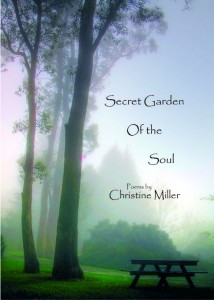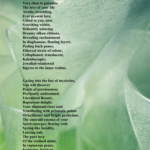- buzzing bee
- Glimmering midnight water
- The lake aglow
A new friend, Steven Earle, sent me a couple of his poems the other day, he's a really interesting guy who I'm learning about and I appreciate his writing.
One of the poems, called 'The Sea' reminded me a little of a W.B. Yeats favourite 'The Lake Isle of Innisfree'. Steven's poem is about a soulful returning to what he knows, to peace and a kind of innocence, a theme shared with 'Innisfree'.
It's one of Yeats' earlier poems and as such, the critics don't rate it as a work of real literary merit, yet it is beloved of the public and it is widely known and read, memorable, and taught in school. Yeats himself acknowledged that his style changed significantly as he matured and developed as a poet, as you will see in the quote from his autobiography below.
I've cherished this poem since childhood and it often springs to mind – even sometimes the parodied versions we chanted – things like:
"I must arise and go now, and go to Innisfree
I left my shoes and socks there, underneath a tree…"
I can feel Yeats' turning in his grave right now…!!
What is represents is a retreat into peace and calm, from the hustle and bustle of city life – a return to simplicity and the opportunity for reflection. Finding an inner sanctum in which we can take refuge and rebuild our strength is something of great importance in these times of global chaos and concern, and I invite you to enjoy the poem and the pictures here, and find your own Inner Innisfree.
Then visit my events page here and decide to come along and find out how to Flourish in Challenging Times, so you'll always have your place of peace to keep you calm and confident of your ability to thrive – no matter what.
The Lake Isle of Innisfree
I will arise and go now, and go to Innisfree,
And a small cabin build there, of clay and wattles made;
Nine bean rows will I have there, a hive for the honey bee,
And live alone in the bee-loud glade.

And I shall have some peace there, for peace comes dropping slow,
Dropping from the veils of the morning to where the cricket sings;
There midnight's all a glimmer, and noon a purple glow,
And evening full of the linnet's wings.

I will arise and go now, for always night and day
I hear lake water lapping with low sounds by the shore;
While I stand on the roadway, or on the pavements gray,
I hear it in the deep heart's core.

William Butler Yeats (1865 – 1939)
Nobel Prize winning Irish dramatist, author and poet
First published in 'The National Observer' 13th December 1890
Innisfree is in County Sligo in Ireland, and was a place where Yeats spent holidays with his family in his youth.
Yeats commented on "The Lake Isle of Innisfree" in a passage in his autobiography about his London days:
"I had still the ambition, formed in Sligo in my teens, of living in imitation of Thoreau on Innisfree, a little island in Lough Gill, and when walking through Fleet Street very homesick I heard a little tinkle of water and saw a fountain in a shop-window which balanced a little ball upon its jet, and began to remember lake water.
From the sudden remembrance came my poem "Innisfree," my first lyric with anything in its rhythm of my own music. I had begun to loosen rhythm as an escape from rhetoric and from that emotion of the crowd that rhetoric brings, but I only understood vaguely and occasionally that I must for my special purpose use nothing but the common syntax. A couple of years later I could not have written that first line with its conventional archaism — "Arise and go" — nor the inversion of the last stanza."





